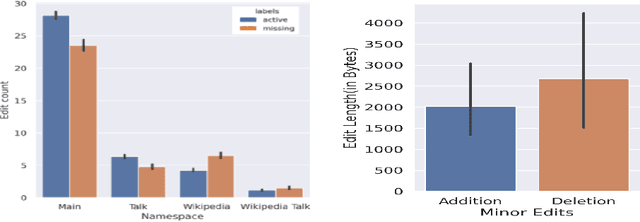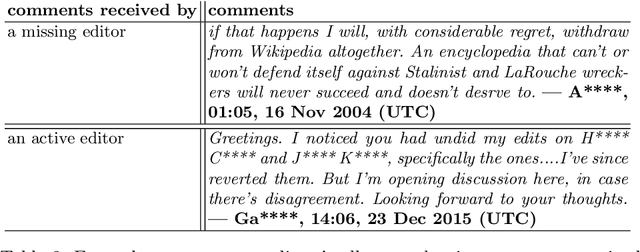When expertise gone missing: Uncovering the loss of prolific contributors in Wikipedia
Paper and Code
Sep 21, 2021



Success of planetary-scale online collaborative platforms such as Wikipedia is hinged on active and continued participation of its voluntary contributors. The phenomenal success of Wikipedia as a valued multilingual source of information is a testament to the possibilities of collective intelligence. Specifically, the sustained and prudent contributions by the experienced prolific editors play a crucial role to operate the platform smoothly for decades. However, it has been brought to light that growth of Wikipedia is stagnating in terms of the number of editors that faces steady decline over time. This decreasing productivity and ever increasing attrition rate in both newcomer and experienced editors is a major concern for not only the future of this platform but also for several industry-scale information retrieval systems such as Siri, Alexa which depend on Wikipedia as knowledge store. In this paper, we have studied the ongoing crisis in which experienced and prolific editors withdraw. We performed extensive analysis of the editor activities and their language usage to identify features that can forecast prolific Wikipedians, who are at risk of ceasing voluntary services. To the best of our knowledge, this is the first work which proposes a scalable prediction pipeline, towards detecting the prolific Wikipedians, who might be at a risk of retiring from the platform and, thereby, can potentially enable moderators to launch appropriate incentive mechanisms to retain such `would-be missing' valued Wikipedians.
 Add to Chrome
Add to Chrome Add to Firefox
Add to Firefox Add to Edge
Add to Edge